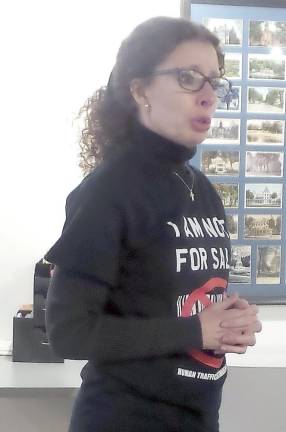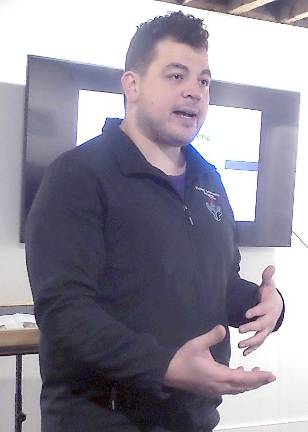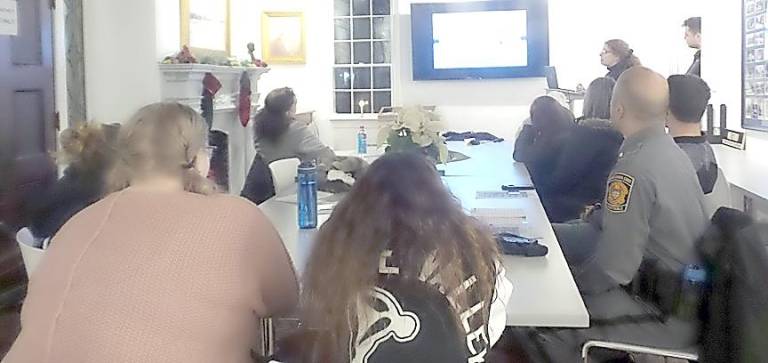VIP explains the stark realities of human trafficking
Milford. Pennsylvania is the fourteenth-highest state in the nation in this "modern day slavery," said the workshop leaders. Victims live in fear under the complete control of their traffickers until they are cast aside to perish, alone and lost. VIP says the police are only beginning to understand the physical violence and psychological manipulation that keeps victims in line.



Human trafficking comes in different forms and harms everyone it touches.
It turns human beings into objects to make money for traffickers.
"Sex trafficking is modern day slavery," said Michelle Minor-Wolf , executive director of the Victims' Intervention Program (VIP), which held a workshop on the subject at the Milford Community House on Jan. 9. (The workshop location was moved because of heat and elevator problems at the library.)
Minor-Wolf and her colleague, outreach coordinator John Hellman, shared sex trafficking realities with the audience. Pennsylvania is the fourteenth-highest state in the United States in incidents of human trafficking, they said. It was once seventh in the nation.
Here are some of the stark realities they shared:
A pimp won't let any of his captives into the house at night unless each hands over $500 to him.
The pimp charges for food and necessities, and the abused workers never catch up in paying him back. They are in his debt until they become old, used-up liabilities. The abusers are in control until the slave labor victim dies or is cast aside to perish alone and lost, and even disabled. They frequently die on the job.
One of the abused workers is sometimes chosen to keep the others in line. The chosen one may get privileges, but is beaten whenever the others don't comply with what the pimp wants.
Innocent women and girls believe the promises they are given about job training or schooling until they find themselves trapped. Often the pimp will threaten to harm the abused worker's family if they don't comply with the pimp's orders. The workers are arrested for crimes they were forced to commit, even though they themselves are victims utterly controlled by their pimps. Pimps are now charged and prosecuted too, but this is only a recent development.
Victims live in a constant state of fear of being imprisoned. The traffickers will often turn their victims into the police.
The police are only beginning to understand the control traffickers have over their victims, and the physical violence and psychological manipulation that keeps them in line.
Victims are groomed after being lured by traffickers, who are often family members or boy friends they know and trust. The traffickers' most powerful tools of control are the victims' need for security, affection, food and shelter.
Sex trafficking means a life of slave labor for missing or exploited children.
Domestic violence is another form of trafficking. When the abuser begs to be forgiven just one more time, the abused person is often ready to give the abuser one more chance. Victims see their forgiveness as an act of love, but the abuser is unable to operate in a loving relationship.
To protect the safety of victims, VIP doesn't advertise its location in Milford. Anyone in Pike County seeking safety and help may contact Minor or Hellman at 570-253-4431. The local hotline for immediate help is 570-253-4401.
Editor's note: This article has been revised to correct the erroneous statement that Pike County is seventh in the state for human trafficking. It is Pennsylvania that is fourteenth in the United States for human trafficking, and was at one time seventh in the U.S. Wolf says Pennsylvania does not currently have county statistics on human trafficking. The Courier regrets the error.